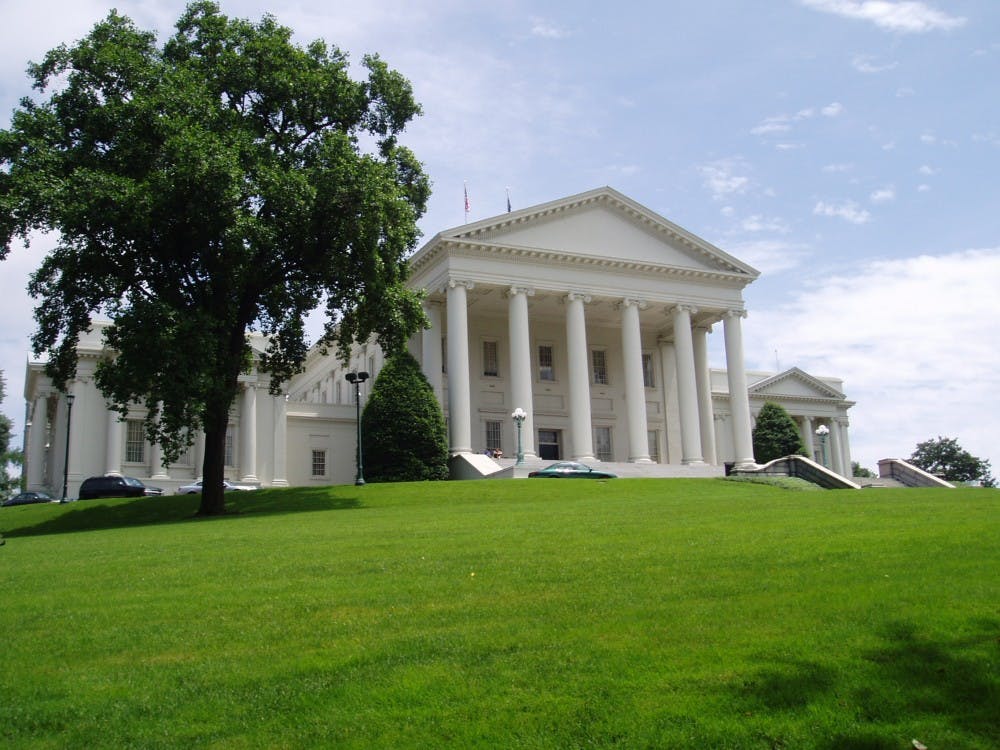A pair of higher education bills to be heard by the Virginia House of Delegates – House Bill 1410 and House Bill 1886 – could decrease out-of-state enrollment and financial aid opportunities at the University.
HB 1410 would forbid Virginia’s public universities from using in-state students’ tuition towards financial aid and require 75 percent of students enrolled to be in-state. HB 1886 would require schools to raise tuition for out-of-state students to make up for any revenue lost from a higher percentage of in-state students.
HB 1410 would specifically prohibit schools from using tuition revenue from in-state students to financially support in-state and out-of-state students, and allows no more than five percent of tuition revenue from out-of-state students to go towards aid for other out-of-state students.
“Universities [like ours] rely upon this model,” second-year College student Zaakir Tameez, co-chair of the Student Council Legislative Affairs Committee and Director of State Relations, said. “If we get rid of that model, then we’re going to have thousands of students who won’t be able to afford U.Va., and the University will no longer be meeting demonstrated need for students.”
According to Tameez, it could impact the University’s financial aid system, which guarantees it will meet 100 percent of the demonstrated financial need of undergraduates. Members of Student Council, including Tameez, plan to go to Richmond to testify against the bill.
“We’ve already informed Del. Albo … that we’re coming, and he was very supportive,” Tameez said. “He said, ‘come on down, let your opinion be heard.’”
Student Council held a meeting Wednesday, in which they provided students with information on the upcoming legislation.
“The overall theme was a general sense of distress — students are worried about the future of U.Va. and about their younger friends and family,” Tameez said in an email to The Cavalier Daily following the meeting. “Their future is dependent on how the General Assembly session goes and how their legislation will impact financial aid.”
State Council of Higher Education for Virginia spokesman Gregory Weatherford said there’s a lot to balance financially with these bills.
“Our higher education system is a very complicated financial structure,” Weatherford said. “You pull something out of a Jenga stack, and it will affect the others, possibly. So you have to be careful.”
In addition to financials, the bill calls for changes in admissions. The chief patron of the bill, Del. Dave Albo (R-Springfield), said he penned HB 1410 in part to increase the share of in-state students at in-state schools.
“We’re just hoping that [in-state schools] can go 75-25 and then we can stop talking about it,” Albo said. “It’s not personal.”
Albo said it has recently become much more difficult for in-state students to get into the University. He said when he graduated from West Springfield High School in 1980, about 32 people in his 600-person class attended the University. Now, he said, 12 get in.
“It is now becoming impossible to get into U.Va.,” Albo said.
According to the University’s Office of Institutional Assessment and Studies, 61.1 percent of in-state applicants were accepted into the University in 1980, while 43.6 percent of in-state applicants were accepted in 2016.
If HB 1410 passes through both the House and the Senate, schools not currently meeting the threshold will have to submit a plan to increase in-state enrollment to SCHEV. The plans would be required to employ a phase-in method, with schools gradually working up to a 75 percent in-state undergraduate population.
“By Dec. 21, 2019, no in-state tuition could be used,” Albo said. “[By] 2023, the entire population should be 75-25.”
Currently, the University undergraduate body is comprised of 69 percent in-state students and 31 percent out-of-state students.
Weatherford said limiting out-of-state admissions could impact universities financially. He said out-of-state students pay 160 percent of the cost to attend.
“Out-of-state students pay significantly more of the share of the cost than in-state students,” Weatherford said. “So if you limit the number of out-of-state students who can come in and pay more of the share, then what do you do with the rest? What do you do with that money?”
For the 2016-2017 academic year, students who entered the College paid $13,060 for tuition and out-of-state students paid $41,722 in tuition costs.
Under House bill 1886, proposed by Del. Tim Hugo (R-Centreville), state schools would be required to increase their in-state admissions and to to make up lost revenue by increasing tuition for out-of-state students.
Some University students, including Tameez and Student Council President Emily Lodge, said they are concerned the bills could reduce diversity at the University.
“The bills could drastically decrease socioeconomic and cultural diversity at U.Va. by reducing financial aid and our out-of-state population,” Lodge, a fourth-year Batten student, said in an email statement.
Still, Weatherford noted, the recent legislation indicates the General Assembly understands the importance of universities and colleges to Virginia.
“There always is a lot of interest in higher education,” Weatherford said. “[But] there seems to be a little bit more perhaps than previous years.”
According to Lodge, promoting socioeconomic diversity is an integral part of the University’s ability to reach its goals.
“The University of Virginia is committed to an endless pursuit of excellence,” Lodge said. “But excellence cannot be defined by socioeconomic status.”
HB 1410 and HB 1886 are both currently in the House Appropriations Committee’s subcommittee on higher education.
University spokesperson Anthony de Bruyn said the University will not comment on pending legislation. Hugo did not respond to a request for comment as of press time.






